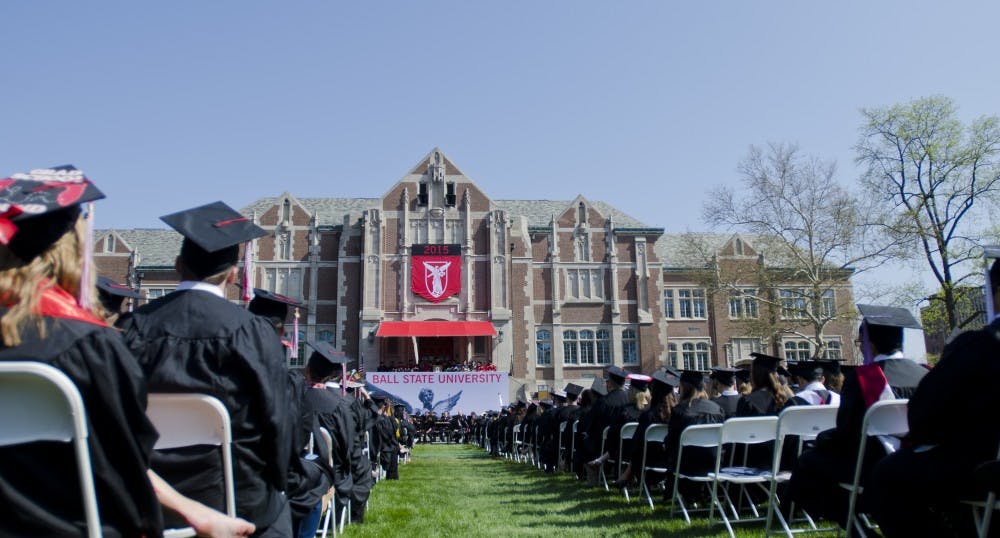More women earn bachelor’s degrees than men, according to the National Center for Education Statistics.
Women earned 57 percent of all degrees conferred in the 1999-2000 academic year, according to NCES. However, men still received 56 percent of doctoral degrees and 55 percent of first-professional degrees that year.
“For a long time, you were expected to go and get a college education, but then you were expected to find a husband and get married and have children,” said Courtney Jarrett, associate director of Disability Services. “Well, there are lots of women that don’t want to do that and that’s OK. The important point about women graduating is that they then go on to do whatever it is that they want to do.”
This trend has continued at Ball State. According to the fact book, out of all undergraduate and graduate students in the 2016-2017 school year, 37.5 percent of students enrolled are men and 62.5 percent are women.
This enrollment and subsequent graduation trend, however, is major-specific and does not reflect across all majors.
Women earned 18,259 bachelor degrees in engineering in the 2013-2014 academic year, according to the NCES. Men earned four times that, with 73,903 engineering bachelor degrees.
The idea of "men’s majors" and "women’s majors" is perpetuated by society and may be caused by a number of reasons, said Michael Hicks, a professor of business and economic research.
"One could be we're not interesting women early enough in science and mathematics. We're not telling girls, when they're thinking about making career decisions in third grade, fifth grade in school, to be good at math,” Hicks said. “The second one could be just the raw fact that women give birth, and that because women are more likely to care for children at some time in their young adult years than men are, that they're choosing more flexible occupations.”
However, Dagney Faulk, director of research in the Center for Business and Economic Research, has noticed a shift in the traditional nuclear family structure because of an increase in educated, working women.
“When I grew up, my mom took care of the house and my father worked and it’s very different now in that women expect their husbands to take larger roles in childcare and household activities,” Faulk said.
Jarrett also recognized a shift in the traditional family structure, noting that when a mother or both parents of a household work, taking care of children and common household chores no longer are solely women’s responsibilities.
On the other hand, Hicks said the societal pressure is on men to go to work — especially in 1960s America, which has carried over to today.
"You were just looked down upon culturally if you didn't have a job, so men in that age group worked," Hicks said.
Junior speech pathology major Melanie Whitesel believes societal shifts toward gender equality have fueled the educational achievement of women.
“Kind of that movement of getting out of that traditional roles and feeling like we need to put ourselves into further education, because we know that will help us gain an edge in the workforce by having those degrees,” Whitesel said.
Although women are earning more bachelor degrees than men, Alex Delong, a sophomore political science major, still recognizes that the glass ceiling exists.
“I know a lot of times, women, in comparison to men, will have a harder time trying to move up than men are,” Delong said. “That might be something along there too, that the standard is just lower for men than it is for women so [women] realize, ‘well I’m going to climb higher to the standard so that way I can supersede the expectations.’”





